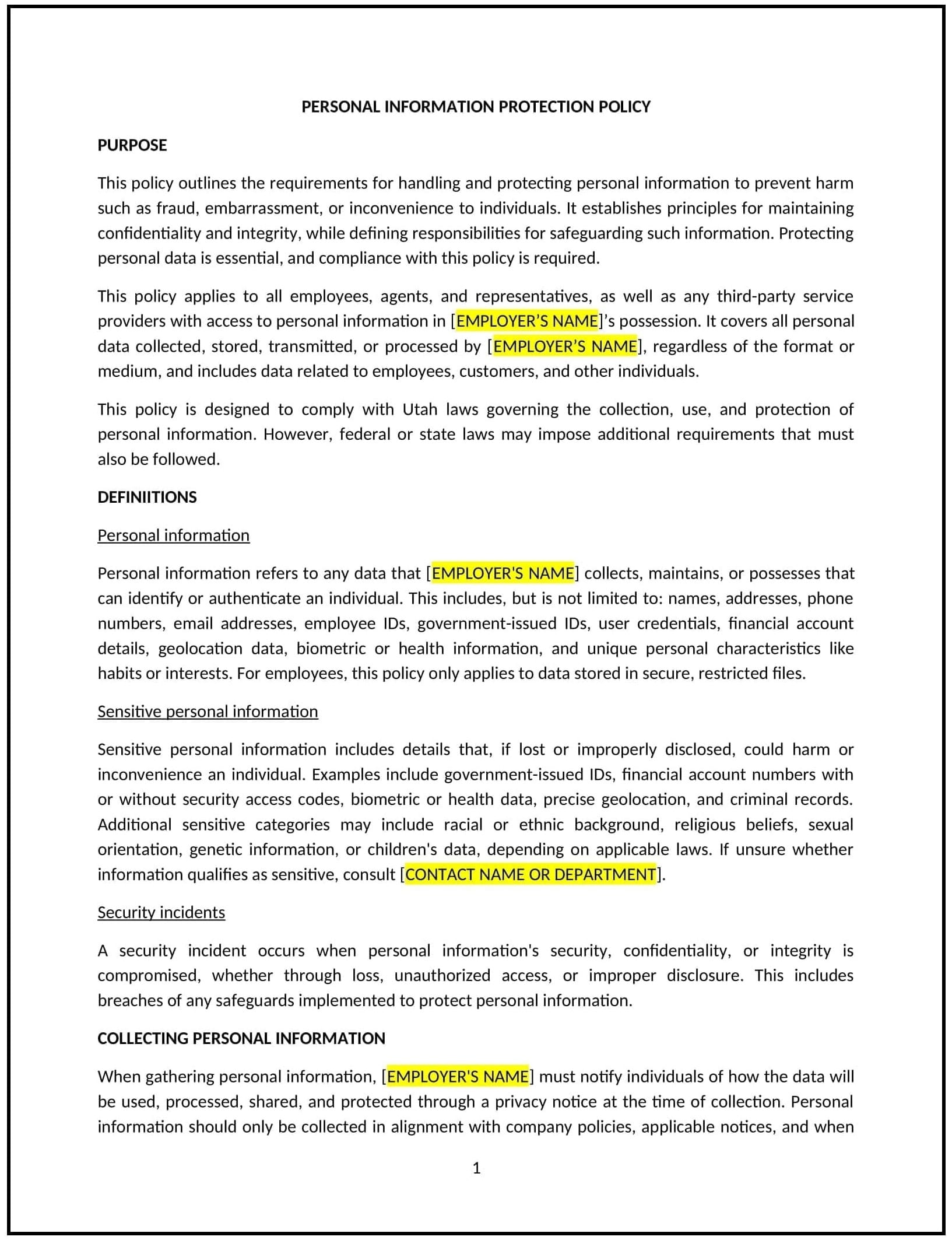Personal information protection policy (Utah): Free template
Got contracts to review? While you're here for policies, let Cobrief make contract review effortless—start your free review now.

Customize this template for free
Personal information protection policy (Utah)
This personal information protection policy is designed to help Utah businesses establish guidelines for safeguarding employees’ and customers’ personal information. It outlines procedures for collecting, storing, and using personal data to ensure privacy and compliance with federal and state laws.
By adopting this policy, businesses can protect sensitive information, reduce the risk of data breaches, and align with general best practices for data privacy.
How to use this personal information protection policy (Utah)
- Define personal information: Specify what constitutes personal information, such as names, addresses, Social Security numbers, or financial data.
- Establish collection procedures: Outline how personal information is collected, ensuring it is done transparently and with consent.
- Address storage and access: Provide guidelines for securely storing personal information and limiting access to authorized personnel.
- Prohibit unauthorized use: Specify that personal information cannot be shared or used without proper authorization.
- Train employees: Educate employees on data privacy best practices and their roles in protecting personal information.
- Monitor compliance: Regularly review data handling practices to ensure adherence to the policy.
- Review and update: Assess the policy annually to ensure it aligns with evolving privacy laws and business needs.
Benefits of using this personal information protection policy (Utah)
This policy offers several advantages for Utah businesses:
- Protects sensitive data: Reduces the risk of data breaches, leaks, or unauthorized access.
- Aligns with legal standards: Helps businesses comply with federal and state privacy laws, such as the Utah Consumer Privacy Act.
- Enhances trust: Demonstrates a commitment to protecting personal information, building confidence with employees and customers.
- Reduces legal risks: Minimizes the potential for lawsuits or penalties related to data privacy violations.
- Supports compliance: Provides a structured approach to managing personal information responsibly.
Tips for using this personal information protection policy (Utah)
- Communicate the policy: Share the policy with employees and include it in the employee handbook.
- Provide training: Educate employees on data privacy best practices and their roles in protecting personal information.
- Monitor compliance: Regularly review data handling practices to ensure adherence to the policy.
- Address issues promptly: Take corrective action if personal information is mishandled or breached.
- Update regularly: Assess the policy annually to ensure it aligns with evolving privacy laws and business needs.